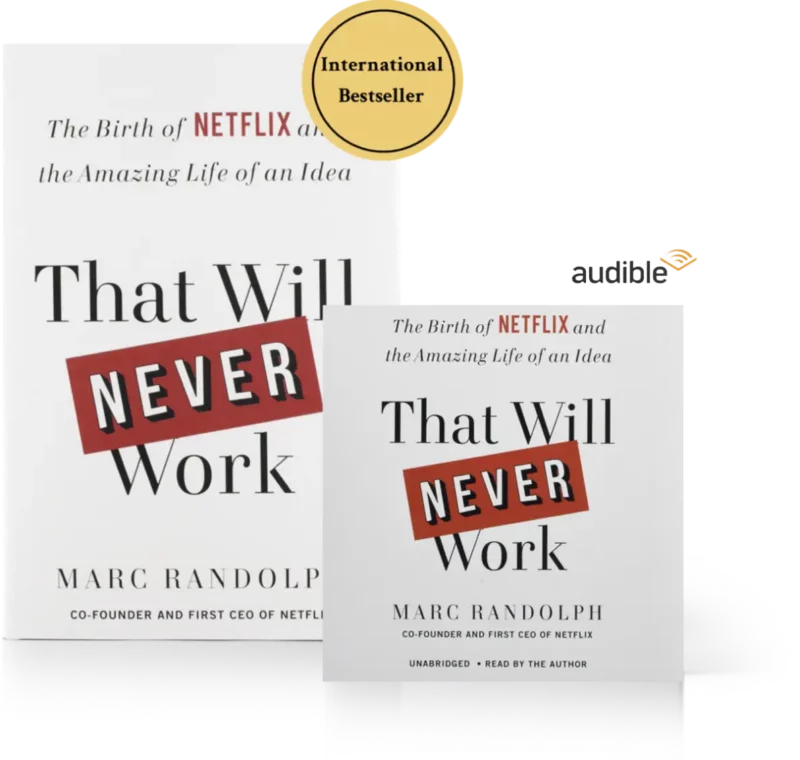These Five Important Lessons I Learned About Building Profitable Businesses …
Were all lessons I learned from business that weren’t trying to make a profit.

There are about 1.8 million active nonprofit organizations in the United States, and it feels like I’ve been hit up by pretty much all of them. But that’s OK. I’m happy to help where I can, a lot of them do great work, and—maybe surprisingly—they’ve taught me some valuable lessons.
Over the last four decades, I’ve worked with dozens of schools and organizations and served on the boards of nonprofits trying to cure diseases, protect wild lands, and literally save the planet.
Initially, I thought my main contribution would be teaching skills I learned in the for-profit world to people in the nonprofit one. But they ended up teaching me at least as much. And not just about the problems facing the world, or the goodness of people’s hearts. Some of the most important things I’ve learned about working to make a profit came from organizations that weren’t even trying to make one.
This is one of those things that’s easier to explain with specific examples than general discussion, so let me show you what I mean.
The Importance of Passion
When I left Netflix, I suddenly had time on my hands and so I said “yes” a lot. Too often, it turned out. I ended up joining several boards that were doing good work . . . but that I didn’t really care that much about. It was a mistake to think that just because they were doing things that were important and meaningful that I would find them so.
And this couldn’t be truer for a start-up. Before we landed on video-rental-by-mail, Reed Hastings and I spent months brainstorming ideas for what business we wanted to start. Although I considered things like market size, competitive advantage and potential margins . . . I was mostly waiting to find a problem that would fascinate me. But that’s been the pattern for every startup I’ve done. In deciding what I’m going to spend time on (and with a startup, I know that time will be substantial) it can’t just be a good idea – it must be something that I care deeply about. I know I’ll never survive the long hours, the grind, and the inevitable disappointments if I don’t.
Getting Things Done
Many years ago, in one of my earliest board roles, I was assigned to the board’s marketing committee. Every meeting followed a similar pattern: the head of marketing advised us on what he was doing, and my fellow board members and I would tell him what he was doing wrong and what he should do instead. But quarter after quarter, none of it ever seemed to get done. Looking back, I now see that our meetings were basically drive-by-shootings. Show up, pepper the VP with ideas, and leave. Figuring out what the organization needed to do was easy. The hard part, I leaned, was figuring out how to actually get it done.
That simple insight has not only shaped my approach to every board I’ve sat on since, but it has also shaped my approach to my start-up work as well – and particularly to the way I treat the people working for me. It’s simply not enough to know what to do – the harder part is figuring out what it will take to get it done – and then making sure that the resources are there and the roadblocks removed. In the movie Oppenheimer, Lewis Strauss informs one of his advisors that “Surviving in Washington is about knowing how to get things done.” It’s no less true in Silicon Valley.
The Power of Motivation
If you think that startups are resource-constrained, wait until you see what a nonprofit manages to get by on. The pressure to do more with less is relentless. But that’s what makes nonprofits so good at leveraging other kinds of motivation.
When you’re managing an all-volunteer board or relying on underpaid staff, you learn quickly how to motivate people to do things when “for the money” is not an option.
Spend time on a school board, for example, and you’ll quickly realize that we need to pay our teachers more. But just as quickly, you realize that the business model of education simply won’t support it. And so you learn that if you want to attract and retain the best teachers, you must have reasons for them to come to work that transcends money. This is one reason why good administration is so critical in schools: when good teachers feel like they’re supported, given flexibility, and recognized for their hard work, they can deliver incredible results on a meager budget.
That same dynamic turns out to be true for your top salesperson or your star engineer. If you’re a startup, you probably can’t pay them what they’re worth. You should try, of course, but you must realize that for a star performer, their compensation is only a small part of why they choose to come to work every morning.
So, you better figure out what those other things are. In my experience, they’re often the same things that motivate teachers: support, flexibility, recognition, and the ability to do meaningful work.
The “Silent Phase”
When nonprofits need to raise a really big sum of money—to build a new building, endow a scholarship, fund a huge initiative, whatever—they usually start with a “silent phase.” This means they start their fundraising process, but they don’t announce it or publicize it. Instead, they quietly approach their biggest donors to see what level of support they can count on. Only after they have commitments for the majority of the money will they launch the public phase of the campaign to raise the rest.
The main reason for this is straightforward: they need to know that they’re not going to embarrass themselves. By talking directly with a few large donors, they can test out the request in a conversational setting that gets them immediate feedback, about both the viability of what they’re asking and the approach they’re using in asking for it. It also has the advantage of making the donor feel a lot more special than if they’d just received a mass email or random phone call, and that never hurts.
I’ve found this approach particularly useful when raising money for startup ventures as well. There’s nothing worse than making a big splash about raising a round, only to fall flat on your face and give the world the impression that something’s wrong. Position your early meetings as opportunities to get feedback on your positioning or pricing or structure. It will quickly tell you whether you are on the right track.
The Real Reason for Being an Entrepreneur
The most important thing I learned from nonprofits, though, was simply that entrepreneurship doesn’t need to be all about profit. In fact, it shouldn’t be. There are better ways to make money, that have far more certain outcomes and a lot less stress. I’ve said it before several times: if you’re an entrepreneur primarily because you want to get rich, you’re in the wrong business.
The real reason to work on a startup—the reason that’s kept me engaged in them for four decades—is to get to solve interesting problems with smart, passionate people. Figuring out a better way to rent a movie was ultimately profitable; so was figuring out a simpler way to perform complex analytics. A lot of the other ventures I participated in weren’t. All of them were worthwhile, though.
What nonprofit work showed me is how much wider the range of interesting problems is when you remove the need for profitability. Without having to focus on making money, I’ve been able to help address issues that I care about deeply: How do we continue to have wild places to enjoy? How does the world support a massive population in a sustainable way? How do we teach people to communicate and work with people who think differently than they do? I’ve had the opportunity to work with organizations tackling all these problems, and it’s some of the most gratifying work I’ve ever done.
This is ultimately the biggest lesson the for-profit world can take from the nonprofit one, I think: picking the right problem to solve can make all the difference in the world. It can mean the difference between staying committed through tough times and burning out. It has a huge impact on the kinds of people you attract to work with you. And it’s probably the most important factor in determining whether you look back on the work you did with pride and a sense of meaning.
That’s why I commit so much of my time and effort to nonprofit work. It’s an entire world of new opportunities to solve important problems—which is exactly what I got into entrepreneurship for.
To find other things I’ve written and much more, check out MarcRandolph.com
RECOMMENDED FOR YOU
Don’t Let Perfect be the Enemy of Good
Podcast Episode 72
Is it a Culture Problem or a Hiring Problem?
October 25, 2022 • 38 min
